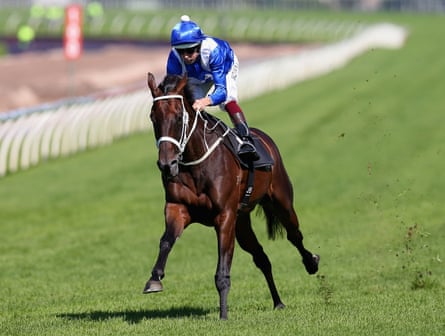1) Football: World Cup
Russia 14 June - 15 July
What to expect from part one of Fifa’s Ethics World Cup double header? Russia 2018 has ticked all the boxes so far: disputes over alleged corruption, human rights abuse, unchecked domestic racism, homophobia and fan violence – while the tournament organiser, Vitaly Mutko, ended 2017 being accused by the IOC of leading “an unprecedented attack on the integrity of sport” via state-sponsored doping, and stepped down. He denies wrongdoing. It’s a lot for Qatar 2022 to live up to. Vladimir Putin says overseas media should lay off and report the bigger picture. “We will bring closer the big and friendly football family – the family that values sports, friendship and fair competition.”
The matches should have a familiar feel, too: Germany and Brazil favourites; England trying to handle the impossible pressure of an easy-on-paper group; and Iceland making their debut, ready to humiliate anyone who takes them lightly. They start against Argentina in Group D. “When you think of a World Cup you think of Argentina and Brazil,” says their coach, Heimir Hallgrimsson. “So for us, this is a little bit romantic.”
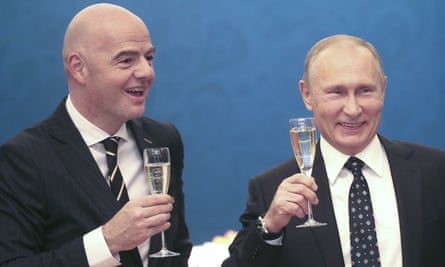
2) Tennis: Australian Open
Melbourne Park 15-28 January
Plenty to look forward to in Australia: the return of Serena Williams four months after giving birth; the chance of her facing Maria Sharapova, who commented on Williams’s “thick arms and thick legs” in her 2017 memoir; the prospect of top men’s talent including Andy Murray returning from injury to stop Roger Federer winning a 20th grand slam; and some rule changes. Among the innovations: a new Bernard Tomic-inspired rule which fines players who retire or perform “below professional standards”, and more trials for the 25-second shot clock, designed to discourage slow serving. Federer, who turns 37 in 2018, isn’t a fan. “If you want a great show, it’s not possible with the shot clock. If you don’t, of course it’s a great improvement.”
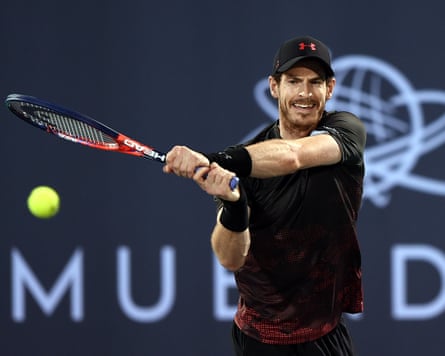
3) Cricket: Australia in England
13-27 June
It’s not the Ashes but it’s a decent alternative for England after a bruising few months – Australia arriving next summer for five one-day internationals and a Twenty20 as part of a busy England schedule in the buildup to hosting 2019’s Cricket World Cup. Also on England’s agenda: meetings with Pakistan and Scotland, and India arriving for a five-match Test series for only the second time since 1959. India’s visit starts in July with a three-match Twenty20 series, followed by three one-day internationals and the Tests at Edgbaston, Lord’s, Trent Bridge, the Ageas Bowl and The Oval.
4) Winter Olympics
Pyeongchang, South Korea 9-25 February
Besides the Russian doping ban, the @realDonaldTrump factor and the fears that conditions will be too cold for spectators to handle (the £44.1m main stadium has no roof, leading to six fans at a recent concert there suffering hypothermia) – there’s a feeling the Winter Games should produce some old-fashioned upbeat stories, too. Chief among them is Nigeria’s women’s bobsleigh team, who need to maintain their top-40 ranking until 14 January to seal their nation’s first Winter Olympics appearance. There’s talk of film rights and they’ve already made one appearance on The Ellen DeGeneres Show – Ellen-fan Ngozi Onwumere telling the production team: “I hope you have an emergency room close by because when I meet Ellen … My heart … I might scream occasionally.” Also hoping to make headlines are the talented Team GB, with “10 to 12 realistic medal prospects”. They won four at Sochi 2014.

5) Athletics: Commonwealth Games
Gold Coast, Australia 4-15 April
England – aiming to defend their place above the hosts on top of the medal table – aren’t going under-equipped: 400 competitors and 250 support staff across 18 sports are the largest team to represent the country at an overseas sporting event. “It’s not cheap,” admits a spokesman. The 75-strong athletics team includes the 2012 Olympic long jump champion, Greg Rutherford, the 100m and 4x100m Commonwealth silver medallist Adam Gemili, the heptathlete and high jumper Katarina Johnson-Thompson and the British 100m record holder, Dina Asher-Smith, who says: “We’ve got so many medal contenders we could sweep events. Having the Commonwealth Games so early in the season really pushes you on: there’s no excuse not to do every single rep and every single step.” 70 nations are competing, with beach volleyball and women’s rugby sevens included for the first time.
6) Golf: Ryder Cup
Le Golf National, Paris 28-30 September
The only other time the Ryder Cup was played on the continent – Valderrama in 1997 – Europe won. The odds are against a repeat this time, though the hosts have plenty of strong selection options, including the English rookies Tommy Fleetwood and Tyrrell Hatton. The year-long PR countdown began in October: organisers putting the captains, Thomas Bjorn and Jim Furyk, on a platform high up the Eiffel Tower and having them fire balls down into the Champs de Mars below – recreating Arnold Palmer’s 1976 set-piece. Furyk enjoyed it. “We started at the Golf National, had dinner at the Palace of Versailles, went to the president’s for breakfast and now we’re hitting shots off the Eiffel Tower. I just can’t imagine a better two days.”
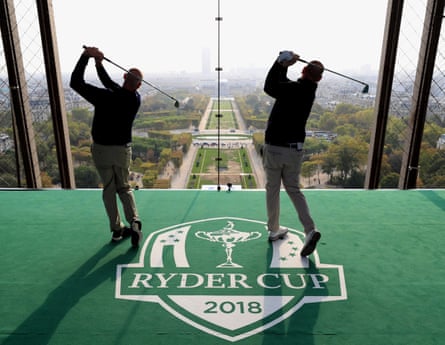
7) Football: Manchester derby
Etihad Stadium 7 April
The earliest a Premier League title has been won was 14 April 2001: Manchester United taking it with five games to spare. What odds, then, on City beating that date by seven days next year – sealing the title at home to United on 7 April? Either way, members of Manchester City’s Tunnel Club will want value for money at the first Manchester derby in the league since the milk flew at Old Trafford.
Among other big days to watch out for in domestic football next year:
The top-flight’s final day on 13 May, which, as it stands now, could feature a potential multi-club relegation battle. Fixtures include Swansea v Stoke, Palace v West Brom, West Ham v Everton and Newcastle v Chelsea. The conclusion of Sunderland’s battle to avoid having to host League One football at the ninth-largest stadium in England. National League South drama – with three points currently separating the top six. And the Carabao Cup final on 25 February – a chance to reflect on, and give thanks for, seven months of engaging ball-draw farce.
8) Boxing: Groves v Eubank Jr
Manchester Arena 17 February
The semi-final of the eight-man elimination World Boxing Super Series sold out in seven minutes. It’s 2018’s most talked-about fight so far – but that’s only until two other fighters have their schedules firmed up. Anthony Joshua’s expected heavyweight unification bout with the WBO holder, Joseph Parker, is likely to be in March, while Tyson Fury, cleared to box after accepting a backdated two-year doping ban, also has his sights on a lucrative Joshua encounter. He hit 27 stone during his enforced absence but Fury’s feeling confident. “Someone labelled us the four heavyweight kings – myself, Joshua, Parker and Deontay Wilder,” he says. “I label it ‘three peasants and a king’. There’s only one king of the division and that’s me.”
9) Athletics: London Marathon
Central London 22 April
Expect Mobots. Britain’s new dedicated road runner makes his first attempt over 26.2 miles since 2014, and will collect a six-figure appearance fee in the process, thanks to the public thirst for a first home winner since Paula Radcliffe in 2005. It won’t be a Farah procession, though – big name rivals include the 33-year-old Kenyan Olympic champion, Eliud Kipchoge, who was only eight seconds off Dennis Kimetto’s world record of 2hr 2min 57sec in 2016. Farah’s warm-up events include a new race in London on 4 March, The Big Half, a half-marathon starting near Tower Bridge and finishing at the Cutty Sark in Greenwich, via a loop through Docklands around Canary Wharf. He’ll be up against Britain’s second-fastest half-marathon runner, the 25-year-old Scot Callum Hawkins. “I love testing myself against the very best in the world,” says Hawkins, “and they don’t come any better than Mo.”
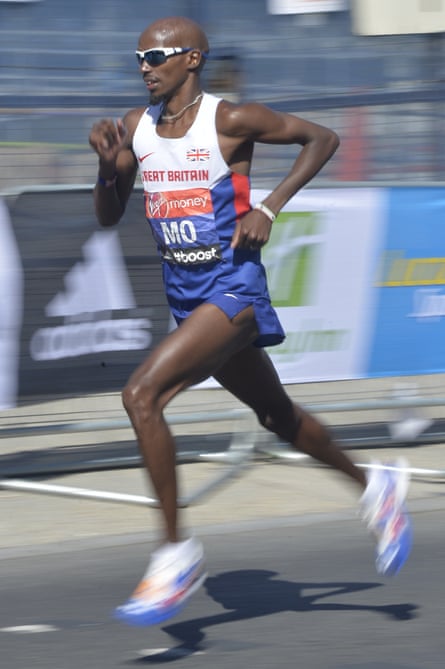
10) Formula One: French Grand Prix
Le Castellet 24 June
A notable race for two reasons: it’s the first French GP for 10 years and it’s the first of a triple header: three grands prix on consecutive weekends. After France, the teams race at Austria’s Red Bull Ring on 1 July, then at Silverstone on 8 July. It means a total of five races in six weekends up to 29 July, before the month-long summer break. Other developments next season: Germany returns to the 21-race calendar; Malaysia drops out; changes have been made to improve the power unit penalty system; cars are expected to be two seconds faster per lap according to simulation data analysis; and there’s a new logo: three squat red stripes replacing the old black and red symbol. Officials say it will bring “excitement and fresh energy”; Sebastian Vettel says: “I liked the old one better.”
11) Rugby union: Six Nations
3 February - 17 March
A big opportunity for the back-to-back winners England, who could become the first nation to win three in a row. The tournament opens on 3 February with Wales versus Scotland at the Principality Stadium, France versus Ireland at the Stade de France and Italy versus England at the Stadio Olimpico. The Women’s Six Nations runs in parallel: the defending champions, England, starting against Italy at Stadio Mirabello in Reggio Emilia on 4 February. The men’s event looks particularly compelling – the Wales centre Scott Williams predicting “the toughest Six Nations to date … everyone’s playing well. Scotland especially have shown the way they want to play.” Wales will be without Sam Warburton, though, as the Lions captain recovers from knee surgery. Later in the year come the autumn internationals, including England versus the All Blacks on 10 November, as teams tune up for the 2019 World Cup in Japan.
12) Football: Premier League TV rights
Late February
Sounds dry – but it’s a defining moment for Premier League suits: the size of the next TV deal defining how much they can blow on transfers, wages, executive emoluments, hospitality suite refits and agents’ fees. Oh, and on grassroots contributions, of course. Next year’s three-year contract should top the record £5.136bn deal struck with Sky and BT in 2015 – potentially by a vast amount if Amazon or Facebook join the bidding – and will change the fixture structure, too, with one package of matches on offer including eight games in a new 7.45pm slot on Saturdays. A treat for away fans. That change won’t come in until 2019-20 but elevated club spending will begin the moment the deal is confirmed. Expect many more “£50m for Kyle Walker?” moments.
13) Football: the new White Hart Lane
11 August
Barring snags, Tottenham’s £800m new ground should be done by day one of 2018-19. “At the moment it’s on track,” says their executive director, Donna-Maria Cullen. “There’s nothing to tell us otherwise, though I don’t have a crystal ball.” When finished it will be London’s biggest club ground with 61,559 seats, even after Arsenal add 780 to the Emirates by 2019. Features include a retractable turf pitch above an artificial surface used for NFL games; a single-tier south stand of 17,500 seats; a Tunnel Club for watching players hawk and spit; and, in theory, a better-than-average atmosphere for a new-build, with the front row five metres from the pitch, compared with 20 metres at the London Stadium. As of now, it remains nameless, with rights yet to be sold.
14) Cycling: Tour de France
Starts Noirmoutier-en-l’Île, 7-29 July
Chris Froome will dominate coverage come what may – he insists he’ll clear his name after September’s failed drugs test. But also watch out for Britain’s Adam Yates, there with team Mitchelton-Scott (formerly Orica-Scott). Yates (pictured) finished fourth in the 2016 race, securing the white jersey for the best young rider, and is tipped to impress again. “The course looks as challenging as ever,” he says, “especially stage nine over the cobbles from Arras to Roubaix. But I’ll have a strong team around me.” Also next year is the four-day Tour de Yorkshire – the legacy of Yorkshire’s Tour de France Grand Départ in 2014 – from 3-6 May, which also features a two-day women’s race. Mark Cavendish plans to be there: “When you see the people of Yorkshire line the road it gives you goosebumps.”
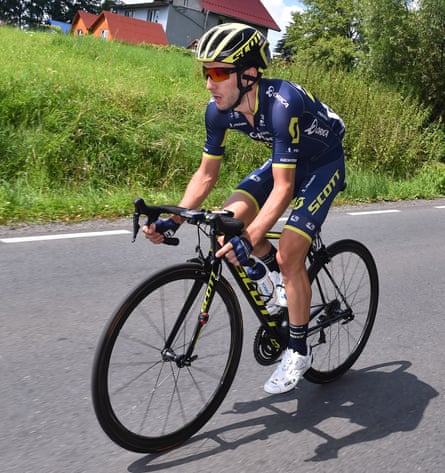
15) Hockey: Women’s World Cup
Olympic Park, London 21 July - 5 August
Six years after London 2012, a chance to recapture that summer’s life-affirming spirit. England’s pool and potential knockout matches at the Lee Valley Hockey and Tennis Centre – on the site of 2012’s Eton Manor Paralympic venue – sold out in September but seats for other games are on general sale via hockeyworldcup.seetickets.com: under‑18s’ seats starting at £1. England, beaten 1-0 by South Korea in the bronze-medal match of the Women’s Hockey World League Final in November, open up against India. “Playing in London is electric, it’s our home, our fortress,” says the captain, Alex Danson. “It’s a tournament everyone will remember for a very long time.”
16) Multi-sport: European Championships
UK & Germany 2-12 August
An inaugural event but not really brand new. The European Championships format – unrelated to the European Games – groups together existing championships of various top sports every four years. The 2018 event involves Berlin hosting the European Athletics Championships while Glasgow stages the aquatics, cycling, gymnastics, rowing and triathlon, plus the new Golf European Team Championships at Gleneagles. Glasgow’s plans include a cultural festival in George Square, while mascot duties come from the dead-eyed, commercially minded tweeting seal Bonnie, @GLA2018Mascot: “Looking for the perfect gift for your little loved one? Look how cuddly I am! Don’t miss out pals, limited availability, pre-order me today.”
17) Football: Nations League
Europe From 6 September
Another new format – but this one rather more dense. In short, it’s Uefa’s plan to scrap most friendlies by splitting all 55 Uefa nations into four leagues: 12 in Leagues A and B, 15 in C and 16 in D, based on coefficient rankings. That, though, isn’t the half of it. At the draw next month, each of the four leagues will be split into four mini-groups of three or four teams, who’ll play each other home and away from 6 September. There’s promotion and relegation, and a June 2019 knockout among League A mini-group winners to establish a champion.
But the tournament’s dark heart is the way it links in to Euro 2020 – giving four sides who fail to qualify via the usual, separate process a controversial second chance. Each league has one Euro 2020 place up for grabs, which will go to the winner of internal play-offs between the best-ranked unqualified sides in each of the four mini-groups. That has implications. Among them:
A troubled League A team could lose all their Euro 2020 qualifiers and all their Nations League games, and still qualify via the League A play-off. If all 12 teams in League A qualify via the usual route, the League A play-off would be contested by League B teams. And at least one League D minnow is set for a very special summer in two years’ time. Uefa deny it’s absurd: “This is the magic of football. We’re keeping the dream alive for all.”
18) Horse racing: Royal Ascot
19-23 June
There’s one big focus in racing next year: whether or not the star Australian race mare Winx, second in the World’s Best Racehorse rankings, will arrive for a summer cameo. Her part-owner Peter Tighe said last month they would make “a good, well-judged decision … it’s a huge temptation to take on the world”. If it happens, it’ll cause a stir similar to Black Caviar’s arrival in 2012 – “The Wonder from Down Under” living up to her reputation, just, by sealing the Diamond Jubilee Stakes, despite the jockey Luke Nolen easing down prematurely. “I made an error that every apprentice is taught to avoid,” he said. “I tried to let her coast home but her big engine shut down and I shat myself. But she still won it. That’s the bloody story.”
